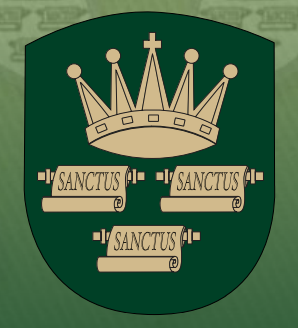e-safety
What is e-safety?
E-safety is a term which means not only the internet but other ways in which young people communicate using electronic media, e.g. mobile phones. It means ensuring that children and young people are protected from harm and supported to achieve the maximum benefit from new and developing technologies without risk to themselves or others.The aim of promoting e-safety is to protect young people from the adverse consequences of access or use of electronic media, including from bullying, inappropriate sexualised behaviour or exploitation. (Merton Safegaurding ChildrenBoard)
Documents
Guide to mobile security
The ICT service's newsletter about Minecraft
SupportNet's Internet safety tips for parents
The ICT services' newsletter about Snapchat.
At All Saints Academy we do not condone pupils under our care using Snapchat.
To use Snapchat an individual must be over the age of 13. When Snapchat says users must be over the age of 13, it is a requirement not a recommendation.
At All Saints Academy we do not condone pupils under our care using Facebook.
To use Facebook an individual must be over the age of 13. When Facebook says users must be over the age of 13, it is a requirement not a recommendation. Unfortunately in 2011 a study conducted on 9-12 year olds showed that 1 in 5 had a Facebook page whist 43% had some form of social media account.
Provided below is a guide for parents about Facebook, for when their children are of an age legally to use this website.
How to guides
- How to set youtube into safety mode.pdf
- How to set up parental controls on the xbox360.pdf
- How to manage Xbox one privacy settings Microsoft's webpage to help you manage Xbox One accounts. It shows how to change privacy settings and online safety settings as well asshowing you how to create a child account.
- PS4 Parental controls A guide to creating and setting up parental controls on a PS4.
External Links
- CEOP Safety centre To find advice and help or to report an incident.
- Mumsnet Mumsnet has a dedicated Internet safety page where information can be found and concerns can be discussed.
- UK Safer Internet Centre A website with guides showing you how to set up parental controls for your home Internet.
- PEGI game database Find the age rating and reasons for this for any game made since 2003.
- Know IT all Lots of e-safety resources for parents, staff and children.
- Think you know The Child Exploitation and Online Protection Centre's website for parents and carers. This site has advice for you wether your child is in Primary or Secondary school.
- Hector's World Hectors World teach KS1 children about internet safety.
- Lee and Kim’s Adventures Animal Magic Lee and Kim explain internet safety to KS1 children.
- THINKUKNOW CYBER CAFÉ KS2 children can explore the Cyber Cafe to learn e-safety. This Cyber cafe has been set up by CEOP (Child Expoltaition and Online Protection centre) along with; Becta, the Department for Children, Schools and Families, the Internet Proficiency group and GridClub.
